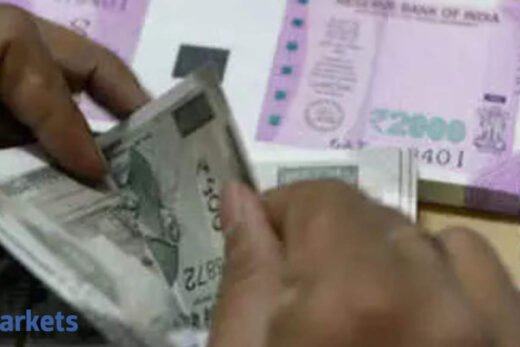What is in store for the economy and market in the next 12 months?
If I knew what is going to happen in the next 12 months, I would have predicted that 12 months ago. When the pandemic had hit last year, I would not have guessed that the whole comeback would be so powerful and led by retail. Retail investors in India becoming so powerful is something which we always wished for many years. I am so glad it is finally happening.
Also the fact that India has started tilting away from the old school of thinking of the government holding assets, trying to constantly depreciate the rupee, treating wealth creators or industrialists as people who are profiting off the land. A lot of those changes are happening in the ecosystem. The liquidity gush from overseas to fund new innovative start-ups in India gives one hope that the country can change its orbit in the coming years.
The last 10 years did not live up to their potential. The next decade looks very powerful and within that, markets tend to discount early. In that context, I remain hopeful about the prospects of our country and economy in the next 12 months.
What is one permanent change which will happen because of this pandemic crisis? Is it a change in savings pattern? Is it an era of low interest rates and high tolerance toward inflation?
At a more existential level, the way we live and work has changed fundamentally. When we were an agrarian society 200-300 years ago, people lived in their own farms with their families and consumed the produce. With the coming of the industrial age, the whole era of five-day week, going to the factory, clocking in nine to five and using the weekend to get rid of the stress came in. That lifestyle is going to change fundamentally and in this era, we have witnessed the ability to work from home across the services sector.
Even in the manufacturing sector, the so-called head office, branch office people manage to work from home while the workers in the factory have to show up. But it has changed forever. People will now be thinking more in terms of a balanced lifestyle. A minority will want to go at 120% saying that life is short and I am going back to the maximum but I do think it has been a wakeup call for all of humanity and technology has a big contribution. We are on Zoom. Today, we would not have been able to function if we did not have a Jio, a Swiggy or a Zomato, an Amazon or a Flipkart.
So, those changes are here to stay for good. The big change which is going to happen is the advent of larger than life companies which are becoming utility type and ubiquitous. It is almost a trend and it is only going to accelerate until the regulators wake up globally. There may be too much concentration of power in too few hands but that trend has been seen over the last five-seven years. Five sectors have 70% of India’s profit pool. Within each sector, the top five companies will make up 70% of the profit pool. So, 30 companies make up 50% of India’s market cap and India’s profit and that is widening.
Do you think that big will become bigger and small remain small or do you think post pandemic we could see newer companies joining the bandwagon and becoming bigger?
I am just drawing lessons from history and I am not a prophet and can’t predict how exactly it will play out, but back in the ‘50s and the ‘60s, when television came, Procter & Gamble and companies like that could hog most of the advertising space and the brands became larger than life and went global very quickly. In a sense the new platforms which are now coming up, are network effect marketplaces. In theory, a small reseller from anywhere in the country or anywhere in the world could be there and find the market.
But the problem of discoverability and the problem of paying for keywords searches etc ensures that in some sense that same ecosystem is playing out. It tends to be a winner-takes-all economy and that is the nature of capitalism. As you digitise things, it tends to democratise things and deflate prices. While that trend will continue, what it also means is that it forces people towards consolidation and that leads to larger and larger sizes and fewer and fewer players. So the whole dynamic of capitalism is playing out in accelerated time now with the advent of these marketplaces.
For example, earlier, in India, we had the two Mangeshkar sisters who are lovely performers. But with the coming of TV, one started seeing 20 more performers coming up and one hoped that would spread out. But 30 years later, only one Shreya Ghoshal stands out among all the female performers and maybe a Sunidhi Chauhan. Where are the 30-40 performers we had been led to expect? I think it is going to be similar in a way. There will be Byju’s, Nykaa and Zomato. But they are consolidating down to two or three players in each of these places even though it is early days.
You have always maintained that a little bit of inflation is good. But now we are paying Rs 100 a litre for petrol! Also, the bigger worry is whether or not a taper tantrum is around the corner. Is the Fed going to hike interest rates anytime soon because that may not spell all that good news for the equity markets?
This is a classic endgame of capitalism. The rich world is pulling wool over the eyes of the rest of the world. If you think of it in a selfish India-centric manner, you see its dynamic. Someone is systematically removing the force of gravity which is interest rates. While the US and Europe and others will label other countries as currency manipulators, what is going on here is unprecedented manipulation of interest rates — globally holding those rates down, using the kind of impressive power of reserve currency of the world to keep printing money.
Having learnt lessons from the last time, you do not surprise the market with hiking interest rates and causing a taper tantrum. The signalling this time is almost 24 months ahead and the language being that we were talking about a hike in interest rates is like a double derivative of what is lying ahead. Also, put it in context that if these countries are now levered four times to their GDP, if you get a 100 bps rise in interest rates, it is a 4% rise in the total outgo of money in these countries and 4% rise in interest payments effectively is more than the rate of growth of the GDP of these countries.
Therefore these rates are not going to go up. They may keep signalling 25 bps and 50 bps and all of that but it is going to become a 400 bps US interest rate if they can help it, It has never been a 400 bps interest in Japan for the last 30 years and what we are living through now is the Japanification of the world. The market does not crash. It will become harder and harder to make money because everyone is getting money at 1% and a lot of the new age companies are getting them at effectively no cost of capital because it is a winner-takes-all market. It is going to be that kind of world and I do not think these price signals from interest rates are going to be as valid as it was in the era we grew up in. Central bankers have effectively given away the power to give signals about inflation using interest rates because the market now know that it cannot go up to 3%, 4%, 5% anymore. That is how it is going to play out. This whole drama of how rates are going up, watch the Fed is kind of yesterday’s story.



